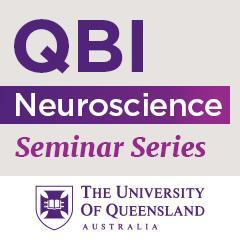Professor Richard Edden - John Hopkins Medical School, USA : "Edited Magnetic Resonance Spectroscopy"

Speaker:
Professor Richard Edden
Department of Radiology
John Hopkins Medical School, USA
Title: Edited Magnetic Resonance Spectroscopy
In vivo magnetic resonance spectroscopy is the only method that allows the non-invasive quantification of endogenous metabolites in the brain. Although peaks from different metabolites are separated by the chemical shift, the width of signals makes the spectrum crowded and limits the number of metabolites that can be reliably measured. Edited MRS uses selective pulses to extract signals from the spectrum - an approach widely used to measure levels of the inhibitory neurotransmitter GABA. Our invention of Hadamard-encoded editing advanced edited MRS from a 'one-metabolite-at-a-time' approach to one capable of quantifying a fuller metabolic profile of more than a dozen metabolites at 3T. This talk will cover a decade of progress in edited MRS, explain the origin of the 'fast editing' methods, HERMES and HERCULES, and present progress on multi-site and multi-vendor integration, including the 'Big GABA' project and HBCD.
Bio: Richard Edden, PhD, is a Professor of Radiology and Radiological Science at The Johns Hopkins University School of Medicine, Baltimore, USA. He was awarded his PhD from Cambridge University in 2005. Moving from high-resolution NMR to in vivo spectroscopy for a postdoctoral fellowship in Baltimore, he was the youngest ever Full Professor of Radiology at Johns Hopkins. His group work to develop novel acquisition and analysis tools for studying neurometabolism. His particular focus has been edited MRS of the inhibitory neurotransmitter GABA, and Hadamard-encoded editing of multiple metabolites simultaneously. The methods Richard's group develops have been implemented on Philips, Siemens, GE and Canon scanners and disseminated to over 150 groups worldwide. Richard has published more than 200 journal articles (h-index 66) and is co-chair of the MRS Working Group for the HBCD study, a 25-site longitudinal study enrolling over 7,000 babies across the US.
About Neuroscience Seminars
Neuroscience seminars at the QBI play a major role in the advancement of neuroscience in the Asia-Pacific region. The primary goal of these seminars is to promote excellence in neuroscience through the exchange of ideas, establishing new collaborations and augmenting partnerships already in place.
Seminars in the QBI Auditorium on Level 7 are held on Wednesdays at 12-1pm, which are sometimes simulcast on Zoom (with approval from the speaker). We also occassionally hold seminars from international speakers via Zoom. The days and times of these seminars will vary depending on the time zone of the speaker. Please see each seminar listed below for details.



